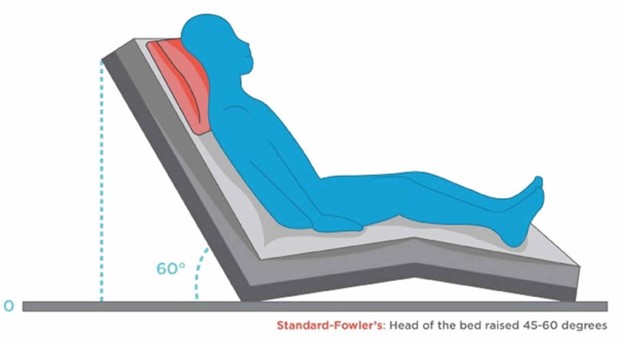A nurse on a medical-surgical unit is caring for a client who reports difficulty sleeping at night. Which of the following findings should indicate to the nurse that the client has sleep deprivation?
Decreased judgment
Decreased activity
Increased reflexes
Increased auditory alertness
The Correct Answer is A
Decreased judgment is a common sign of sleep deprivation. When a person is sleep deprived, their cognitive function can be impaired, leading to difficulty making decisions and exercising good judgment.
Options b, c, and d are not necessarily indicative of sleep deprivation. Decreased activity can be a sign of many different conditions, including fatigue or depression. Increased reflexes and increased auditory alertness are not commonly associated with sleep deprivation.
Nursing Test Bank
Naxlex Comprehensive Predictor Exams
Related Questions
Correct Answer is ["A","B","D","E"]
Explanation
The nurse should stop the transfusion, place the client in high-Fowler's position, obtain a prescription for a diuretic, and administer oxygen to the client. These actions can help manage the symptoms of transfusion- associated circulatory overload (TACO), which can occur when a client receives too much fluid too quickly during a blood transfusion.
c. Administering epinephrine is not an appropriate action for managing TACO. Epinephrine is used to treat anaphylaxis, which is a different type of transfusion reaction.

Correct Answer is D
Explanation
When a nurse receives a new prescription over the telephone from a client's provider, the first action the nurse should take is to write down the complete prescription. This ensures that the nurse has an accurate record of the prescription and can refer to it when administering medication or providing care.
Option a is incorrect because documenting the prescription as a telephone prescription in the medical record is important but not the first action.
Option b is incorrect because reading back the prescription to the provider is important but not the first action.
Option c is incorrect because ensuring that the provider signs the prescription is important but not the first action.
Whether you are a student looking to ace your exams or a practicing nurse seeking to enhance your expertise , our nursing education contents will empower you with the confidence and competence to make a difference in the lives of patients and become a respected leader in the healthcare field.
Visit Naxlex, invest in your future and unlock endless possibilities with our unparalleled nursing education contents today
Report Wrong Answer on the Current Question
Do you disagree with the answer? If yes, what is your expected answer? Explain.
Kindly be descriptive with the issue you are facing.
